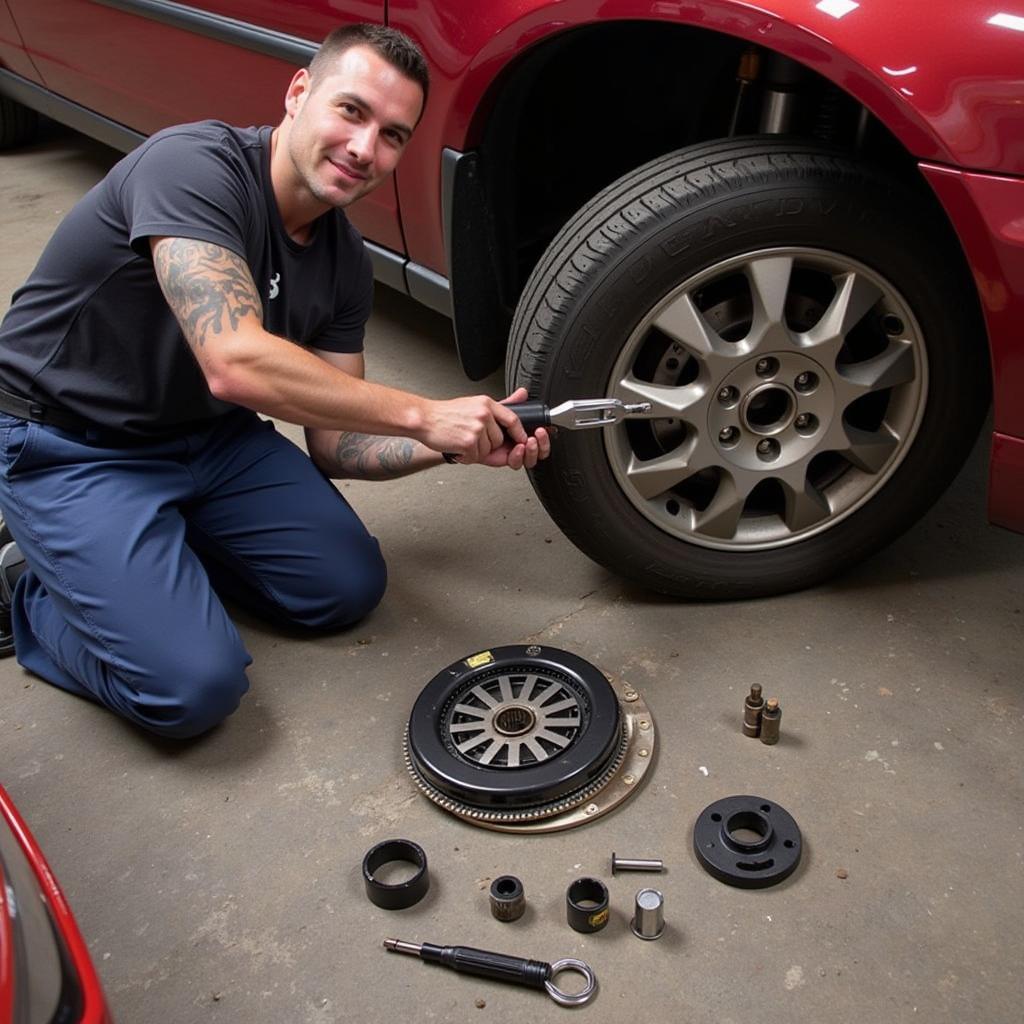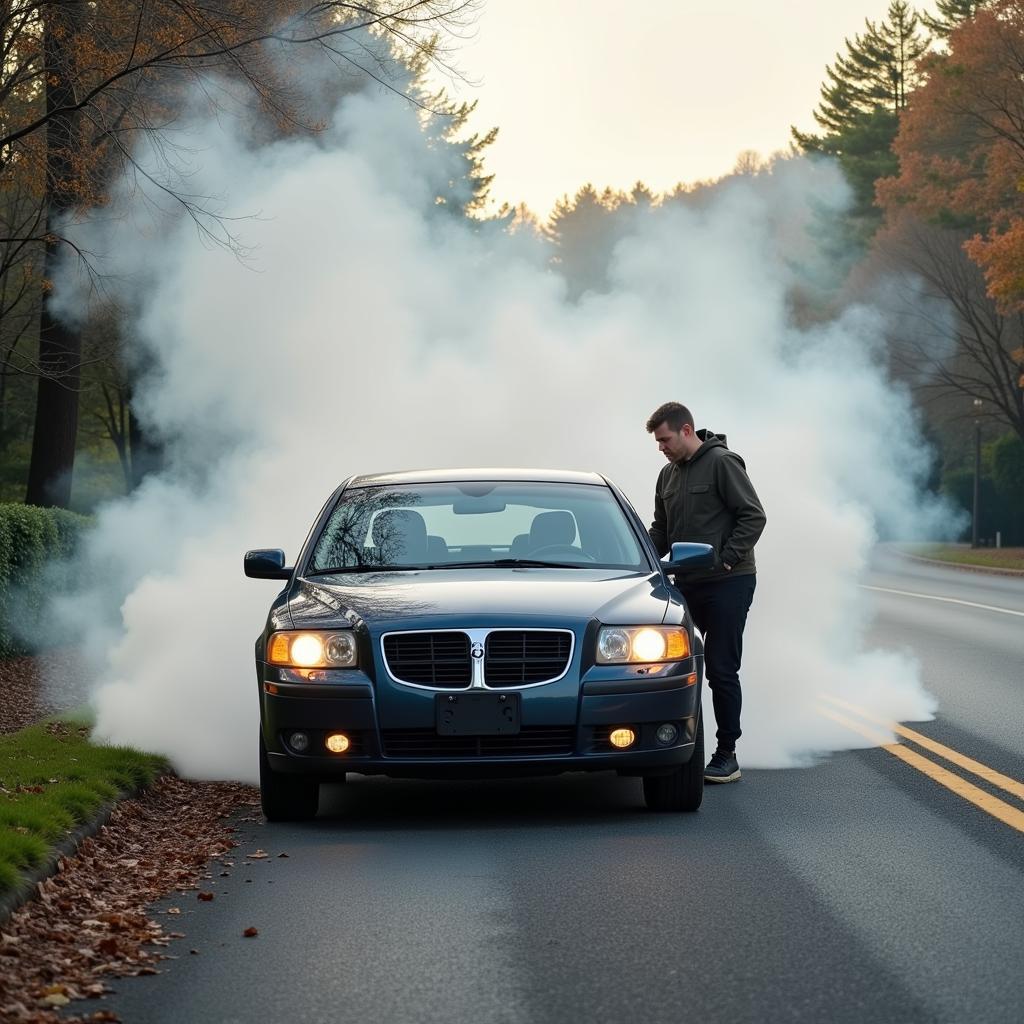Manual Car Clutch Problems can be a real headache, impacting your driving experience and potentially leading to costly repairs. Understanding the common issues, their causes, and possible solutions can save you time, money, and frustration. This guide dives deep into the world of manual car clutch problems, offering practical advice for car owners, mechanics, and automotive enthusiasts.
One common sign of clutch trouble is a slipping clutch. This occurs when the clutch disc fails to transfer engine power to the transmission effectively. You’ll notice this when accelerating, especially uphill, as the engine revs increase without a corresponding increase in speed. Another frequent issue is a sticky clutch, where the clutch pedal feels heavy or doesn’t return smoothly after being pressed. This can be caused by issues with the hydraulic system or the clutch cable. Difficulty shifting gears can also be a symptom of manual car clutch problems, often accompanied by grinding noises. These issues can stem from a worn clutch disc, a faulty pressure plate, or problems with the release bearing. If you are experiencing any of these symptoms, it’s crucial to address them promptly to prevent further damage to your transmission. For more information on manual transmission issues, check out this article on manual car problems.
Identifying Common Manual Car Clutch Problems
Several components within the clutch system can contribute to manual car clutch problems. The clutch disc, pressure plate, and release bearing are the most common culprits. A worn clutch disc, often due to high mileage or aggressive driving, can lead to slippage. A faulty pressure plate may cause the clutch to engage unevenly or not disengage fully. The release bearing, responsible for disengaging the clutch, can wear out over time, causing noise and difficulty shifting gears. Identifying the specific component causing the problem is crucial for effective repair.
Is it the Clutch Cable or Hydraulic System?
Distinguishing between cable-operated and hydraulic clutch systems is vital when diagnosing manual car clutch problems. Cable-operated systems are more straightforward and often easier to troubleshoot. Problems here might involve a stretched, broken, or misadjusted cable. Hydraulic systems, on the other hand, can be more complex, involving master and slave cylinders, hydraulic lines, and fluid. Leaks, air in the lines, or failing cylinders can cause issues in these systems. If you experience solenoid problems in cars, it’s important to have them checked as well.
Troubleshooting and Repairing Manual Car Clutch Problems
Troubleshooting clutch problems starts with a visual inspection of the clutch cable or hydraulic system. Look for leaks, damage, or signs of wear. Checking the clutch pedal feel and listening for unusual noises when engaging or disengaging the clutch can provide further clues. If you’re uncomfortable working on your car’s clutch system, it’s always best to consult a qualified mechanic. They have the expertise and tools to accurately diagnose and repair the problem. If your car refuses to shift into any gear, you might want to check this resource: car problem no gears work.
When Should You Replace Your Clutch?
Knowing when to replace your clutch is crucial. Ignoring clutch problems can lead to more extensive and expensive transmission damage. If you notice consistent slippage, difficulty shifting, or persistent noises, it’s time to consider a clutch replacement. The lifespan of a clutch varies depending on driving habits and vehicle usage, but typically ranges from 30,000 to 70,000 miles. If you’re facing transmission troubles, considering whether to repair it is a big decision. Explore more about that here: should i repair a car with transmission problems.
 Manual Transmission Clutch Replacement
Manual Transmission Clutch Replacement
“A properly functioning clutch is essential for a smooth and enjoyable driving experience,” says automotive expert John Miller, a seasoned mechanic with over 20 years of experience. “Regular maintenance and addressing issues promptly can prevent costly repairs down the road.” Another expert, Sarah Chen, a certified automotive technician, adds, “Don’t underestimate the importance of a healthy clutch. It’s the vital link between your engine and transmission.” For enthusiasts experiencing clutch issues in their virtual garages, this article on My Summer Car transmission problems might offer some insight.
Conclusion
Manual car clutch problems can range from minor annoyances to major mechanical failures. Understanding the common symptoms, causes, and solutions empowers you to address these problems effectively. By being proactive and seeking professional help when needed, you can keep your manual transmission in top condition and enjoy the engaging driving experience it offers. Contact AutoTipPro at +1 (641) 206-8880 or visit our office at 500 N St Mary’s St, San Antonio, TX 78205, United States for expert assistance with your manual car clutch problems.





Leave a Reply